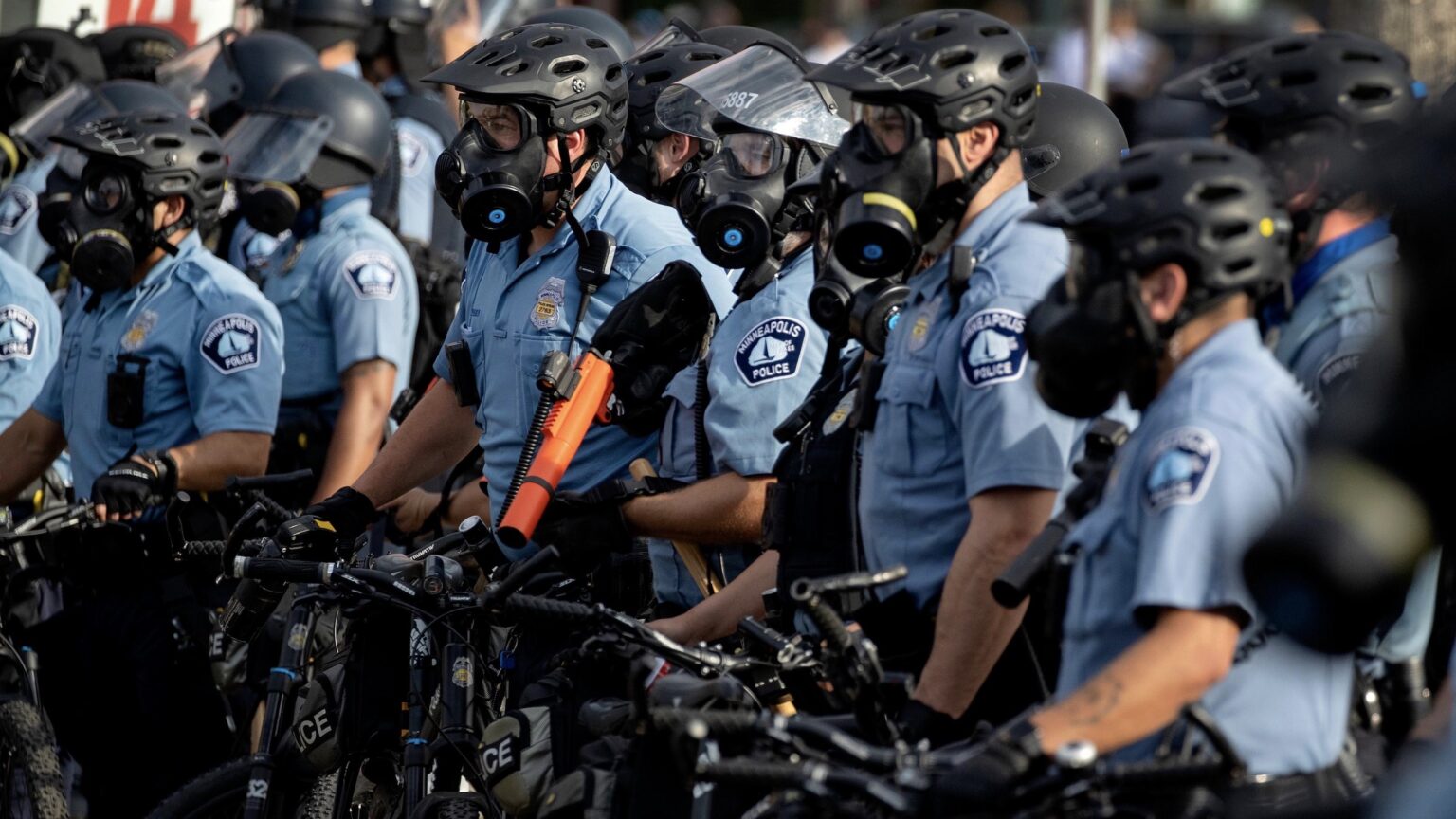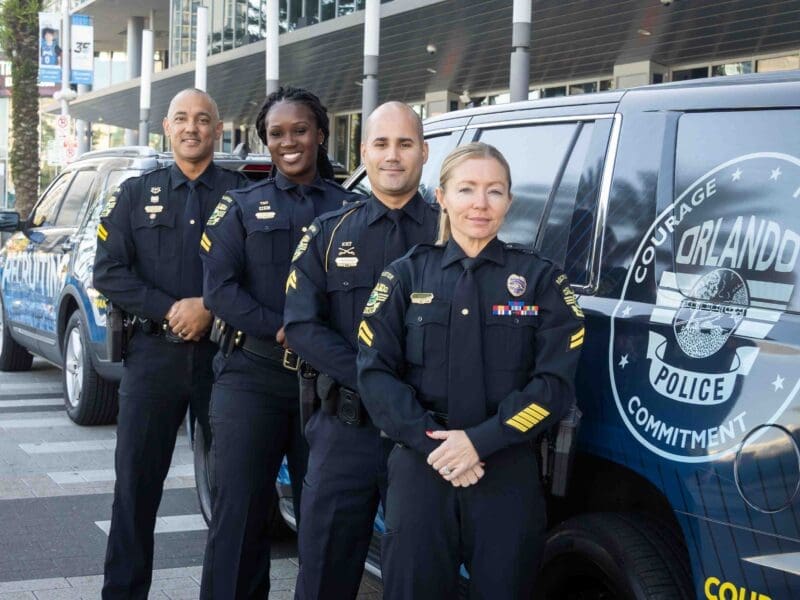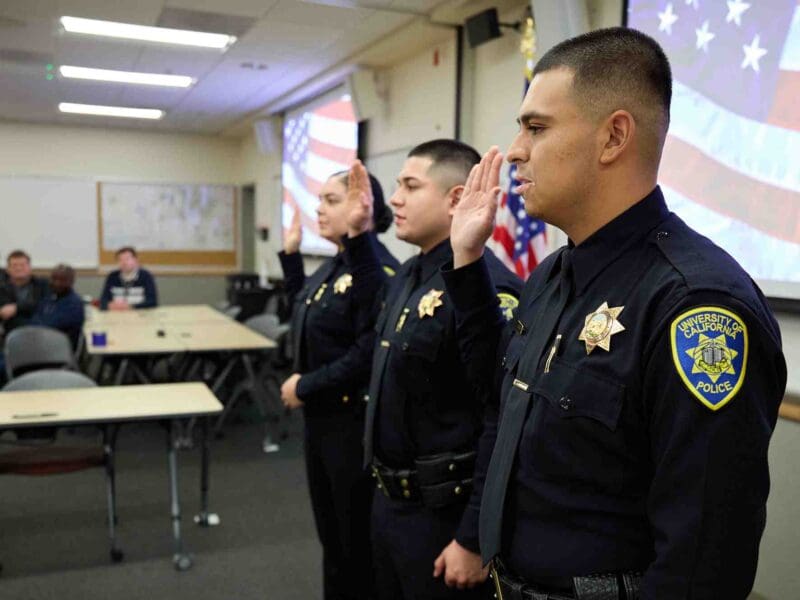
What does Minneapolis, MN look like after defunding the police?
After major protests around the U.S. following a Minneapolis police officer kneeling on the neck of George Floyd for nine minutes, many have called for significant police reform. George wasn’t the only victim of police brutality.
Breonna Taylor died when officers executed a no-knock warrant at the wrong apartment – her killers have been fired but are yet to be charged. Ahmad Arbrey was killed by a former police officer while running in his neighborhood.
These three killings and the injury & deaths of protestors at Black Lives Matter protest have sparked a movement to defund police departments across the country. Cities around the country have removed money from their police budgets, but Minneapolis is the first to propose significant budget cuts.

Minneapolis proposes to defund the police
On June 26, the Minneapolis City Council unanimously approved a proposal to strike the Minneapolis Police Department, MPD, from the city’s charter and create a more holistic approach to community safety.
The language to what the new Department of Community Safety & Violence Protection will look like is not included, but that’s the point. The proposal creates a blank canvas for council members to rethink what policing will look like alongside traditional policing.
Kandace Montgomery, the director of Black Visions Collective, told The New York Times it’s hard to get people to envision a different system than what they’ve always known.

The people would have to take a vote on the amendment before it’s enacted. Minneapolis’s City Charter Commission delayed its vote on the proposal, deciding they need more time to review the language. The delayed vote kills any chance of the proposal being on November’s ballot.
In the meantime, Minneapolis City Council decided to move $1.1 million from the police department to fund “violence interpreters,” a group of unarmed civilians to help mediate violent conflicts to prevent further trouble, as part of the health department & the “cure violence” model.

Minneapolis today
Minneapolis is currently seeing an uptick in crime not spurred by the $1.1 million cuts to the police department budget. Since the beginning of 2020, around 100 officers have left the department or are taking leave, more than double than previous years.
Citizens have reported street racing (sometimes resulting in crashes), daylight carjackings, robberies, assaults, and shootings, but nothing is being done. According to MPD crime statistics, violent crime is up, stating more people have been killed in the city in the first nine months of 2020 compared to last year. Property crime is also up over 55% from the same time last year.
According to Council President Lisa Bender, it’s not so much that officers feel understaffed & overworked but that they’re defiant. Her constituents say officers have admitted they’re purposely not arresting people committing crimes.

What do residents think of defunding MPD?
Minneapolis residents, especially those in the North Side, the city’s largest concentration on Black Americans, have mixed feelings about defunding the police. Many residents rather see policy & criminal justice reform over defunding or replacing the police.
Replacing the police with a holistic community-first approach attempts to reduce the need for a police force in Minneapolis under fire for its aggressive attitudes aimed at Black residents. Residents still rely on MPD to answer calls when their house is broken into or gunshots are heard.
Minneapolis North Side resident Royal Jones, in an interview with The New York Times, describes the community’s relationship with MPD like his relationship with his mother, “She might “whoop” me for doing something wrong, and I might get mad at her for it, but at the end of the day, I still relied on her.”

Other residents are skeptical that a different approach to policing will work. Kentrell Grimes in The New York Times article explained, “at the end of the day, that is still policing. How can you defund the police and then bring another group to police?”
North Side residents aren’t even the most vocal supporters of defunding the police. Floyd was killed on the South Side – the side with a smaller Black population – and residents over there are stronger and more vocal supporters of defunding MPD.
Residents like the idea of fewer officers to focus on major crimes, while a new office would focus on petty infractions & minor incidences. The sky’s the limit if the changes to Minneapolis’s charters are approved by voters when it eventually hits ballots in the future. A comforting idea to some and a scary one to others.
—
Do police officers need to patrol for fix-it-tickets or speeding tickets, or could a different office or service, like parking enforcement, take care of it? Let us know your thoughts in the comments.







